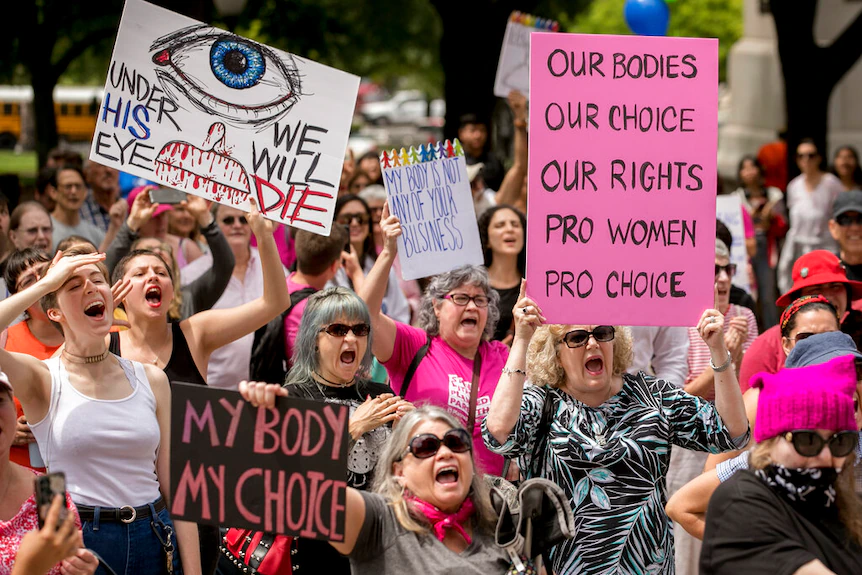A Woman’s Choice: Abortion
May 25, 2022
Since the historical decision of Roe v. Wade 49 years ago, states and legislature only seem to be reverting to what it was before. The Supreme Court will soon be making a choice on whether to reverse that law (though documents of their drafted opinion have been leaked), and a great number of states’ legislature are passing bans on abortion. Texas’ restrictive abortion law went into effect September 1, 2021.
It prohibits abortions after fetal cardiac activity is detected which is usually around 6 weeks of pregnancy. That is before a majority of women can even tell that they are pregnant, meaning by the time they do, it’ll already be too late. There are no exceptions for rape or incest. It also allows any private citizen to sue anyone that aids a woman getting an abortion.
Charges are applicable to someone driving a woman to a clinic and to the actual medical professional performing the abortion. More and more states have continued to pass similar legislation. Pregnant women have been forced to travel miles just to get an abortion, and clinics are becoming unwilling in fear of being sued.
But there are many speaking out to advocate for a woman’s choice in abortion. Protests against these laws are not small in size and they ensure their voices will be heard. There are so many stories and reasons of why these women may need an abortion, and banning it is simply unconstitutional.
Some women face financial problems and having a baby will not help. Forcing them to give birth would only force that child to have a harder life if their mother will not be able to support them. Or for women that even desire to be pregnant, may need to terminate it for some reason like a serious medical diagnosis that requires chemotherapy, surgery or other medical treatment that is not compatible with pregnancy.
Or the child may even be put at harm or forced to live a hard life if they survive. “I am horrified to think that . . . the doctor who helped us . . . would be prosecuted as [a] criminal under this law for providing basic, safe medical care and expertise,” said Christy Zink, testifying before Congress about her decision to end her pregnancy after 20 weeks, after learning that her unborn baby was missing half of its brain. None of what was stated above is possible with these abortion bans.
And more may no longer be possible for long. Anti-birth control movements are growing alongside anti-abortion, and many Republicans are attempting to blur the lines between the two to make it harder for women. Last year, in a Missouri statehouse, lawmakers debated whether or not they needed to restrict Medicaid coverage of birth control and limit payments to Planned Parenthood.
They attacked birth control to attack abortion by extension. “What’s been happening in Missouri last week should serve as a warning sign for what’s to come,” says Alexis McGill Johnson, president of the Planned Parenthood Action Fund. “We’re already hearing members of the U.S. Congress spread the same falsehoods we’ve seen in Missouri, conflating medications that prevent pregnancy—birth control and emergency contraception—with medications that end pregnancy.”
Like Marjorie Taylor Greene, who echoes these lies. She once told Congress, “contraception stops a woman from becoming pregnant. The Plan B pill kills a baby in the womb once a woman is already pregnant.” This is not true in the slightest. Plan B prevents pregnancy before the woman is even pregnant. You cannot kill a baby that does not exist.
And while these claims haven’t worked yet, it does not mean it won’t one day. And with the constant amount of anti-abortion bills being passed, this development is alarming. Republicans want to blur the line between birth control and abortion because they want the power to control what happens to women’s bodies. But the fundamental truth, despite how they try to change it, is that a woman has the choice to what happens to her body.
